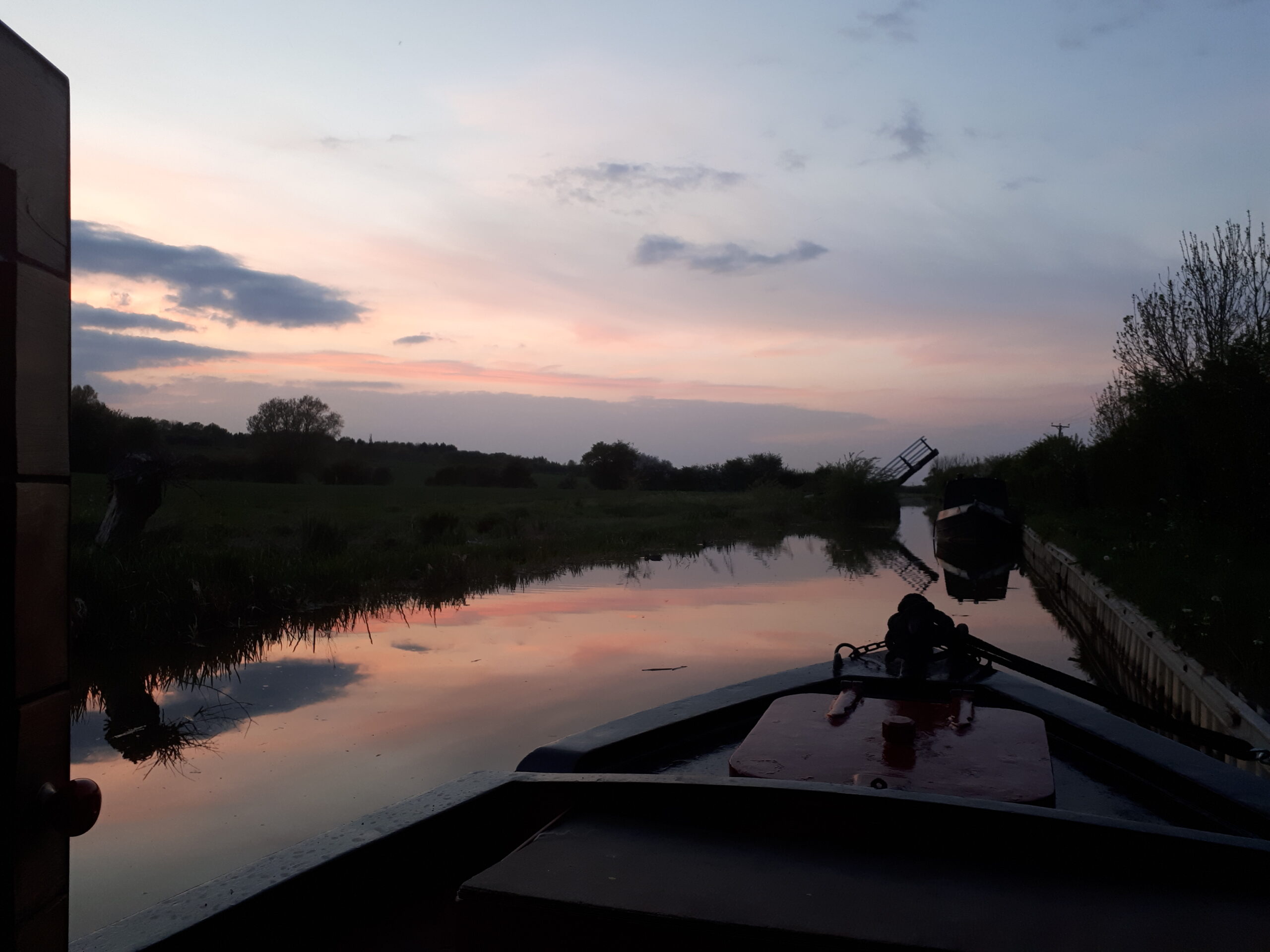Usually around the end of February, things on the canal start to come back to life after winter. Repairs to the infrastructure get completed, the waterways open again and boaters come out of hibernation, and start thinking about summer journeys, or what to plant on the roof, or what jobs need doing on the boat during warmer weather. People meet in pubs or at boat service points and catch up with friends they haven’t seen for a while.
Not so this year. When the country was suddenly plunged into lockdown in late March it wasn’t only the road network that ground to a halt. The Canal and River Trust announced that boaters should not move unless really necessary, to go to a home mooring, or get water or other services. It suspended the 14-day mooring rule for continuous cruiser licenses, meaning that boaters no longer had to move every 2 weeks. Most people who had been due to come off winter moorings stayed and everyone else stopped moving.
Some of us were moored in great spots, isolated and free of other people, so we hunkered down, ensured water tanks and gas bottles were full and toilets were empty, and got on with all the jobs on our boats we never had time for. And tried not to worry about the virus, or about money, or if we had a job to go back to. Many boaters reconnected with friends and family on the cut, or made new friends and supported each other through the coming weeks. The canal is isolated in many ways from the rest of the world, and felt more so during lockdown. It felt safe for many of us.
Other boaters on busier networks didn’t have such a peaceful time. Some places on the canal are busy on the water but busier on the towpath. Once the government started advising people they could and should venture out for daily exercise locally, towpaths became full of walkers, joggers, cyclists, even more than usual. For older or more vulnerable liveaboard boaters unable to move their boats, this caused great alarm, as suddenly lots of people were passing right outside their homes, often with no thought to social distancing. Some people even complained about the fact that liveaboard boaters were ‘out of their homes’ on the towpath, going about the vital business such as chopping firewood or repairing boats!
The liveaboard boater community is a strong one, and as usual in times of crisis boaters got their heads together and started innovative ways of supporting each other. A nationwide social media forum was set up to co-ordinate more localised support for isolated boaters who might not have access to food or medication. Zoom meetings were held to link into existing support services for other marginalised communities. We checked in on neighbours, arranged food parcels and dropped them off, volunteer recruitment helped those further away from community hubs and Pay-It-Forwards covered wood, gas and diesel for those in need.
The boating community, at least in more rural locations certainly had it easier during lockdown than many people, in that the outdoors and nature is right on our doorstep. Also, it was possible for most boaters to move if things became too much in one place and take their boat to a less busy location. But many people’s mental health deteriorated during lockdown, boaters included, regardless of location. The weather at least, since March has been kind and the Spring and Summer warmth and Vitamin D has been a huge help to many. However, money worries were no different for those on the canals – with seasonal floating markets cancelled, many traders found themselves with no income this summer.
The worry now is what winter will bring. On the canal it’s always a time to concentrate on keeping warm and dry and keeping spirits up. If we have a second wave during the cold, dark season it will hit travelling communities hard, physically and mentally. It will be more vital than ever for travelling communities to rally around and help each other, and for authorities and charities to remember that we are out there, tucked away but needing guidance and support.
About the author

Sam Worrall is a New Traveller who lives on the Oxford canal.

